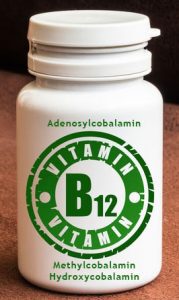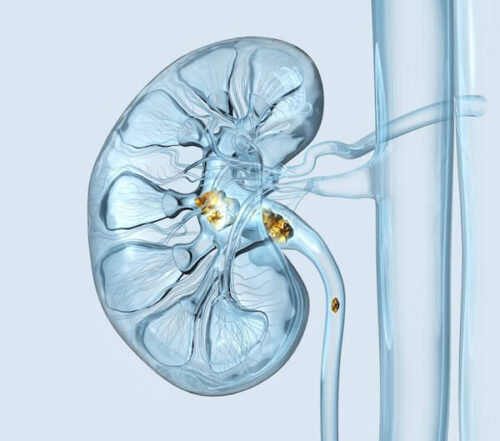Responses to the Colonoscopy Article
Comments On Colonoscopy Article (August 2010 Newsletter)
I am pleased that my August 2010 article on screening for colon cancer with a sigmoidoscope exam has received so much interest. The colonoscope exam may save lives but it also takes lives, and the costs and adverse effects are significant. My overall recommendations that I share with you in my newsletter are made only after thorough investigation of the science and considerable thought of all the possible consequences. I think a second read of my article would help some of you to come to a better understanding of my position on the issues. My December 2002 newsletter and my book, Dr. McDougall’s Digestive Tune-up, have vital information on the cause of colon cancer and polyps. Your efforts for cancer prevention should be solidly focused on the matter that is inside your colon: the remnants of your meals.
John McDougall, MD
Letters:
I enjoy your newsletter every month, but I’ve been planning to write you ever since receiving the August newsletter to say how very much I appreciated it–especially the article on colonoscopy. My doctor in Illinois urged me to have a colonoscopy when I turned 50. I managed to put it off until I was 52. It went fine, and there were no polyps. However, that was 10 years ago–and so now he is urging me to have one again. I made a copy of your article to hand to him if he keeps urging me to have one. DH
I am a nurse case manager and follow patients who have been discharged from the hospital. I see patients who have had perforated colons from colonoscopy from time to time. At one period of time I was following 5-6 patients who had colon perforations and then surgery for resections. I am over 50 and told my doctor that I did not want the test. She asked why, and I told her about the patients I was following at the time. She did not say anything–just remained silent. I just told her to write on the documentation that the patient (me) declines having a colonoscopy. Information that people receive on the procedure makes it sound as simple as having your teeth cleaned at the dentist! Anonymous
As a practicing gastroenterologist for 36 years, I want to make a few comments regarding your recent newsletter article pertaining to colonoscopy. To begin with, I agree entirely that the gastroenterologist that saw Mary should be reported to the local medical board for improper conduct. However, I do not feel you should characterize all of us as caring mostly about money. I can assure you there are other specialists like myself who continue to practice past age 65 solely because of our love for medicine and our patients. Your recent article, as are all your articles, is supported by an abundance of sound medical references. I agree that the cost is out of control. I don’t agree that the procedure complication rate quoted by you reflects all of our experiences. As for myself I have performed over 14,000 colonoscopies over 36 years without a single perforation. Furthermore, the usual duration of the procedure is far less than 30 minutes, as many gastroenterologist often reach the cecum in 2 to 4 minutes. As you are aware, it is the duration of withdrawal time that is important in terms of polyp detection. What bothers me the most about your article and the literature cited is that you have basically given up on the 1/3rd of screening patients who do have right-sided polyps based on existing data. In my opinion, we have not lowered the cancer mortality rate from right-sided lesions because of poor colon preps, inexperienced gastroenterologists, and mucosal microsatellite instability which makes polyps in the right colon far more dangerous because these turn to cancer with metastases much quicker than the 20 to 35 year time table you quote. Rather than giving up on these patients, shouldn’t we improve the preps, train the gastroenterologists better, and lower the costs? In addition, let’s see what this new era of magnifying colonoscopes will do in the right-sided polyp detection rate, particularly flat lesions, and ultimately the number of lives saved as a result. The center where I practice has recently replaced all existing colonoscopes with this new technology. One last point I want to make is that a sigmoidoscopy without sedation is generally mildly to moderately painful. This is because the most difficult (and most dangerous) area of the colon to negotiate is the sigmoid colon, even by trained hands. TP (medical doctor)
I appreciate your updates. I especially appreciated the one about colonoscopies. A friend’s mother died of a perforated bowel that happened during a colonoscopy. She was a perfectly healthy 64 year old woman when she was advised to have a routine screening. MG
After your recent article about colonoscopies I thought this piece by Dave Barry might interest you. JM
Thanks very much for your article on colonoscopy. I wish I had been able to see that before I went through mine. But I can share a story about this topic with you that you might find amusing. About 17 years ago – in my late 50s and shortly before I became a vegan, my personal physician suggested a flexible sigmoidoscope and I agreed. He found a number of polyps and diverticuli, which he mapped out on a diagram, and wanted to do more testing. But at about the same time, we discovered severe coronary artery blockages and following advice from books by you and Dean Ornish, I changed my lifestyle to low-fat vegan. I told my physician that I was going to concentrate all my efforts on reversing the heart disease and I wanted to wait a year before I addressed the colon problem. A year went by and he asked me to undergo another sigmoidoscope exam, which I did. He spent a very long time with that tube up my ass and apologetically told me that the device must be faulty, that I’d have to come back in a week or so for another exam. When I returned for the second exam, he also took much more time than the original exam. When he finished, he told me that he was amazed that there were no signs of the polyps or diverticuli he had carefully noted a year before. He had assumed the instrument was faulty because he couldn’t find them. Then, some 15 years later, he recommended a colonoscopy. I kept putting it off, and finally told him that I didn’t want one, but I’d undergo a virtual colonoscopy, instead. So, we set that up. The three days of preparation, which I followed precisely, was much more disagreeable than I expected, and there was no sedative given at the procedure. A medication to immobilize peristalsis was given through an IV (without my being informed) and then the procedure, with air blown up my rectum, lasted about a half an hour. It was quite uncomfortable, but the worst was yet to come. The air that inflated my intestines was trapped, and the medication to freeze all movement didn’t wear off for about a half an hour afterward. The pain was the most severe I’d ever experienced, and lasted until I was able to expel the trapped air. The results came back that I had a nodular tumor in my cecum, 90% chance of being malignant. This led to the requirement” of a standard colonoscopy. I was told that this was absolutely necessary in order to biopsy or remove the tumor in my cecum. I was also told that it was a matter of great urgency; it could not wait. Following three days of prep, I went in for the procedure. There was no discomfort and at what felt like a few seconds later, the GI specialist doing the procedure told me to look at the screen. The cecum was perfectly clear, as were the rest of my intestines. There was no tumor. When the device was removed and I was able to sit up, the GI told me it was most likely some fecal matter that had been thought a tumor. I asked him how the radiologist could have made that mistake, and he replied, Those radiologists – they don’t know shit. Neal
The specific recommendations for colon cancer screening change every few years based on new studies. The important thing is to have some type of screening done. There are noninvasive methods such as stool testing that are risk free. Sigmoidoscopy also carries the risk of bowel perforation, though the rate is 4 times lower than colonoscopy. Most perforations occur in people with a history of abdominal surgery, which can cause tight areas in the bowel. Less than 10% of those with bowel perforation due to endoscopy die. Those who die after a perforation usually are those having a therapeutic endoscopy for intestinal bleeding and are very ill to begin with. Presently, there are five advocated options for elective screening in asymptomatic patients: 1) yearly stool testing for occult blood starting at age 50, 2) an air-contrast barium enema of the large bowel at age 50 and every five years thereafter if the findings are normal, 3) flexible sigmoidoscopy (FS) at age 50 and every five years thereafter if the findings are normal, 4) computed tomography colonography at age 50 and every five years thereafter if the findings are normal, and 5) colonoscopy at age 50 and every ten years thereafter if the findings are normal. When I turn 50, I will probably go with a colonoscopy for colon cancer screening since the risk is greater of dying from colon cancer than from colonoscopy. With just a sigmoidoscopy I would worry about the rest of my colon all the time. When I turn 70, I probably will just go with the stool tests. JO (medical doctor)
I enjoyed your article on colonoscopy. Here at the VA, we screen our asymptomatic patients annually with Fecal Occult Blood Tests x 3. If this is positive then we refer for colonoscopy. This cuts way down on the colonoscopies at the VA, which really helps since we have so many patients and too few GI docs to do as many as they do on the outside. HF (medical doctor)
Thank you very much for the article on colonoscopy. I’ve been fighting that battle for a very long time. I had the sigmoidoscopy and have been vegetarian for 20 years. I will continue to say no thanks. Dorothy
I’ve had this done twice now and I can assure you it won’t happen again. BTW, You failed to mention that even the purging regimen can be dangerous to kidney function if you are not rigorous in taking the large quantities of water necessary. The place where I had this done was the new Endoscopy Suite at Mercy Hospital (a private hospital; we also have the tertiary care center U of Iowa Hospitals and Clinics, the largest teaching hospital in the country). They can do FIVE (5) of these procedures simultaneously in their fancy new addition. Tell me they don’t need to amortize that cost. Before I had my procedure the first time I DID ask the doctor how many colons he had perforated. He was completely upfront with me and not insulted since he knew I had every right to know. He had perforated one (out of several thousand) and explained why it happened. He felt the risk was worth it in detecting or forestalling colon cancer so I went on with it. The reason for going to him in the first place was I had had a free sigmoidoscopy at the UIHC and they had found a polyp or two and suggested it. No conflict of interest there as they knew, I would have it done at the other hospital, completely different set of doctors. The interesting thing to me was in both cases they removed a couple small polyps, which, in both cases were in the first two feet or less of the colon. Were I to want another exam I would certainly go with the sigmoidoscopy but at nearly 66 and in excellent health with a very low fat, low sugar, complex carbohydrate diet I see no reason for further tests. SH
I recently saw a Dr. Oz TV show and he showed his experience with his colonoscopy that he said “saved my life”. They found a precancerous polyp. I thought of your recent newsletter article on colonoscopies. How could he be so narrow-minded? He must be part of the “business”. He said nothing of the risks involved or doing a flexible sigmoidoscope or of the research that shows the lack of necessity of colonoscopies. He actually encouraged everyone 50 and over to get colonoscopies! MG
I read your article about the dangers of colonoscopy. I wish I had read it sooner. I am 41 years old and had occult bleeding in my stool. The doctors said I had to have a colonoscopy and endoscopy. The procedures were a nightmare. They overdosed me during the procedure because I woke up screaming for them to stop. The outcome was that I have gastritis. I currently blend my food because I have constant pressure and burning in my chest. I am hoping to start your program soon so I can feel good and get rid of the digestive issues I have. KM
Thank you very much for your Colonoscopy article. I am 69 and I have had 4-5 of these procedures over my lifetime with no polys ever been found. My doctor wants to do one every five years since my grandfather died of colon cancer when he was 69. Your article convinced me to forgo the procedure for the rest of my life. FM
Had I not had a colonoscopy at the age of 42 I would not be here today. There are many others, young and old, who have normal tests, including the fecal test, and find out only with a colonoscopy. Everyone is different and for some it is not a slow growing cancer. T
Your latest newsletter is as outstanding as always. However, this one was very timely for me as I’m almost 52 and WAS considering a colonoscopy. The only reason I’ve put it off is that I’ve been vegan for 20 years and figured the odds of me getting it had to be many times less than your average meathead. You just saved me a lot of misery and quite a few bucks. I’d like to donate $100 to your organization. DG
Recently my father-in-law had a colonoscopy. We forwarded your recent article to him prior to the test, but he still went through with it. He was told his colon was not clean. He said that the last time he had one, they told him he also was not clean which made the procedure a lot more difficult. So this time he did not eat for 60 hours, and everything coming out was “clear”, but they said he was not clean. He said he plans on not doing more and is taking the article to the doctor when he goes for his follow up. He said he is going to show her the article and see what she says. He stopped smoking on his own almost 3 years ago, started eating oatmeal and an apple for breakfast, and runs a lot. We are looking forward to him becoming even healthier. AS
More comments are found on my Discussion Board.
Also add any further comments you may have here.
Recommended Articles

What is the Best Formulation of Vitamin B12?

The Truth About Oxalates & Kidney Stones






Join the Conversation!
Have a question, a helpful tip, or a story from your journey? Add it below - your voice matters.